How To Find Your Center, Know What To Do, & Get Your Timing Right… With The Time Management Tao System

Ask Time Management Tao follower Sarah Randall about goal setting for time management and she grins knowingly.
Ten years in ‘the rat race’ had left her weary and battered, stressed out and care-worn, disillusioned and bitter.
Sarah visited Indonesia, Thailand, Vietnam, and finally India.
Along the way, she rested and relaxed, learned about a mystical way of interpreting time, and rediscovered her passion, enthusiasm and purpose.
This is the story of how it happened.
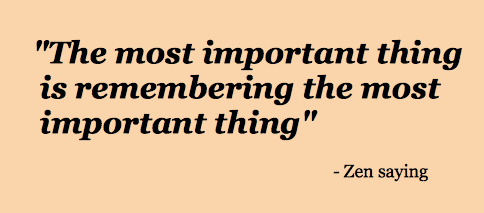
A Different Way Of Looking At Time
“The Tao never strives, yet nothing is left undone.”
– Lao Tsu
We often think about time management as a ‘paint by the numbers‘ game.
You draw up lists of 3, 5 or 10 things to do. And assign a time limit to each. Then you go at the list like an archer at a shooting gallery, firing away with focus at a target.
Bang! Bam! Bang!
One after another, you check off completed tasks – until you’re run through the list.
Except… it never is finished!
- New stuff sneaks into your list.
- Others dump their chores on you.
- Emergencies and rush-jobs crop up.
And before you know it, you’ve been working all day long without getting your ‘to do’ list done.
That’s frustrating. Saddening. Stressful.
“Where did all my time go?” you wonder, anguished at how quickly the day sped past, leaving you almost exactly where you started.
“I need more time. A few extra hours in my day!”
That’s how Sarah felt – until she learned to interpret time differently. You can learn it too.
Time Management Tao – The New Approach

It begins with a slight, subtle shift in your perspective of time and goal setting. Let’s talk about it, starting with 3 simple questions:
- Is What You Do Fun?
- How Do You Feel While You’re Doing It?
- Are You Living Your True Purpose?
The answers to these apparently simple questions holds the seed for your new appreciation of time, and a powerful paradigm to help you manage it more effectively.

Are You Having Fun?
Now, many people think of fun as being only carefree, frivolous play.
Rarely do we think of our job or work as being fun. But the very best time managers, the really successful folks, those who squeeze the most joy out of life, are the people who have fun all the time, in everything they do.
That’s not really surprising, because whenever you’re having fun, you want to keep on going.
- You’re in the flow.
- You don’t feel stress, or worry, or anxiety.
- Things just keep humming along smoothly.
Okay, I know what you’re about to say. Your job is so serious, important and critical that you can’t have fun!
But fun isn’t being careless or unthinking.
Fun is the enjoyment you feel while doing something, the sense of fulfilment when you’ve successfully completed it.
And any kind of work can be fun.
Yes, even deadly serious, mission-critical and hyper-complex jobs.
The trick, then, is to find the type of work that’s fun – for you!
When you look back later, after you’ve finished doing something, you should have a sense of well-being, a deep satisfaction that you’ve done what matters. This applies to your job, your hobbies, your duties, your responsibilities – everything.
The trite goal setting cliche is true.
When you find what you love, you won’t work another day in your life… because you’ll be having such fun, it won’t seem like work!
Which brings us to the next question.
How Does Work Feel?
“Happiness is the absence of the striving for happiness.” – Chuang-Tzu

Pause for a moment to ask yourself how you feel about what you do.
Your exact role or job title isn’t important. Whether you’re a home-maker or a CEO, a brain surgeon or garbage collector, a teacher or a carpenter, your work makes you feel a certain way.
- Do you feel happy about what you’re doing?
Or does your job leave you feeling frustrated and dissatisfied? - Are you energized and enthusiastic as you progress through your projects?
Or is there a sense of being bogged down in worthless, time-wasting activity? - Are you proud, feel that you’ve accomplished something?
Or are you merely taking orders, clocking time, to collect a pay check?
After answering these questions, consider another perspective.
Whenever your own cycle is matched optimally to the type of work you do, you’ll find everything feels easier, more enjoyable, and fun.
If you’re an early-morning person, scheduling your toughest tasks and intricate projects as the first activities of your day heightens your productivity.
But if you’re a late-bloomer, that routine may leave you exhausted and upset.
Doing the work you like and enjoy, on a schedule that matches your own internal clock, can turn time management and goal setting into an easy, effortless exercise.
But it depends on one more thing.
What Is Your Purpose?
Conventional time management teaches goal setting from a certain standpoint. It forces you to set targets and define milestones along the path to reaching it.
That approach is excellent to manage projects – but not as effective when it comes to managing something infinitely more complex… your life.
We are spiritual beings housed in a physical form.
Sure, we need to sustain and care for that form, through earning a living to meet our basic needs. But unless you are desperately poor or fighting for survival, that alone won’t keep you going for long.
You need more to fulfil your existence. To excite your senses. To challenge your potential. And to push you to your limits.
Once you clearly identify your purpose, and work towards achieving it in your daily routine, time takes on a different dimension.
You’ll discover that there is always abundant time available to get things done.
You’ll be more efficient, more focused and more productive – because you’re now working with purpose.
And that, in essence, is what grounds the Time Management Tao approach.
Finding Your Center & Knowing WHAT To Do
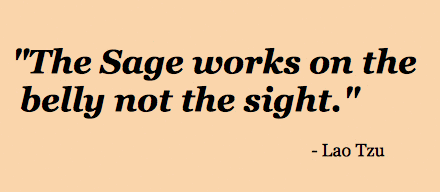
There’s a stark contrast between the Time Management Tao approach and a more traditional one.
Open any book or guide on goal setting or time management and you’ll start with a section about how to be better organized.
Or making effective lists.
Or logging the way you currently spend your time, to identify areas of waste for potential improvement.
That paradigm is broken!
Because it is a formula for higher efficiency… but NOT EFFECTIVENESS.
You can become super-efficient at doing the wrong things.
- It won’t make you happier.
- It won’t leave you less frustrated.
- And it won’t save you much time.
The biggest problem with adopting the age-old method of managing time by creating your to-do list to work on is that you have no training on what to put on your list.
- You end up with a list that’s too long.
- Or allowing other people to dump their tasks on your list.
- Or cluttering it up with trivia yourself.
Like a dog chasing it’s own tail, you then end up seeking ways and means to be more efficient at getting those tasks done – without addressing what’s at the root of the problem…
You Don’t Know WHAT To Do
Time Management Tao BEGINS with that core issue.

It helps you find your center.
Identify what matters most to you.
Prioritize it higher than anything else.
Only later do we embark on the next steps, and learn how to
- Understand your order – know HOW to do it, and
- Pick your timing – know WHO to use & WHEN
Time Management Tao Turns Goal Setting On Its Head
“Nature does not hurry, yet everything is accomplished.” – Lao Tzu
Knowing how to set goals is at the heart of effective time management.
But goal setting doesn’t have to be formulaic.
It is true that most goals fit into 4 broad classes:
- Financial
- Health
- Relationship
- Spiritual
But within these broad categories, there are thousands of nuances which make your goals distinct from mine, and anyone else’s.
The Time Management Tao approach to managing time begins by turning goal setting over on its head.
It puts YOUR priorities at the top of your list of things to get done.
My guide about Goal Setting will go deeper into the specific steps you can follow to find out
- what things are more fun to you,
- how your energy levels peak and fall, and
- what your true purpose is
– so that you can formulate a set of goals to align with them, making time management effortless and fun.
The way of the Tao is frictionless and stress-free. It leads to a path of harmony and balance. Everything happens in its own time and pace.
- You’ll learn how to become a facilitator, observer and participant, all at once.
- You’ll discover the rare joy of working with time, instead of against the clock.
- And you’ll find out why there’s always an abundance of time available for doing what needs to be done.
… if only you cut out the clutter and zero in on what is meaningful.
That’s what Time Management Tao will teach you about goal setting.
Now, before going on to the next tenet of the Tao style of managing time – getting things done – let’s explore the important issues of delegation, maintaining a day planner, and discuss how to prioritize.
How To Understand Your Order
Know HOW To Prioritize Correctly – So That You’ll Be More Effective, Not Just Efficient

Learn how to prioritize your tasks using a day planner. It is the most important element of time management after you master the first rule of effective goal setting – knowing what to do.
There is an inevitable order to Nature.
Whether you like it or not, you must follow and obey that order.
- You cannot construct the second and third floors of a building without laying a foundation and finishing the ground floor.
- You cannot reap a rich harvest without first planting the seed and nurturing the sapling.
- And you cannot run and jump before learning how to sit, stand and then walk.
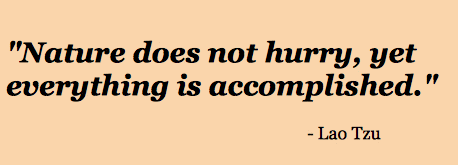
By knowing the order of things, and respecting the sequence to be followed, you will accomplish more with less effort.
And do it in a shorter time than if you’re always mindlessly busy, driven by the urge to greater efficiency.
Prioritize your day planner to save hours of precious time.
That is an essential difference between the Time Management Tao approach and conventional thinking about how to manage time. At its heart are two concepts called
- Zugwang, and
- Wuwei
What Are Zugwang and Wuwei?
Zugwang is a technical chess term which means (in German) “the obligation to move”.
In chess, when it is your turn to play, you cannot choose to pass. You must move one piece – even if it means you have no good moves.
Or even if any move you make will be worse than doing nothing!
But Life is not like that.
You are never forced to make a move. Zug is optional.
If it is better to do nothing, then you don’t have to act.
Wuwei, in Chinese, means ‘doing nothing’.
There’s an art to Wuwei that has a deep impact on your style of time management.
Wuwei doesn’t mean total inaction. It means that you understand the order of things, and then act according to it.
It means you practice inaction for all the superfluous or irrelevant things that typically crowd and clutter your day.
In the Tao style of goal setting, you learned how to find your center… and identify what things you must get done.
By now striving to understand the order in which they must be done, you free yourself to focus exclusively on the right things – without wasting precious time, effort and resources on other stuff.
Wuwei makes you incredibly powerful.
Like water dripping constantly on a boulder will eventually wear down and break the rock, your relentless persistence on the most relevant tasks will bear fruit over time.
How To Achieve More – Without Working Harder

Here is an interesting story, with a powerful moral.
A man was gardening. He planted some bamboo shoots. Watered them daily. And watched them grow… slowly.
He was in a hurry, this young man.
Soon, he became impatient. He wanted his garden to grow faster.
One morning, he came up with an idea.
He pulled each of his plants out of the soil by an inch!
All day long, he was happy because they now looked as if they had grown bigger.
But by evening, all of them wilted. In a few more days, all the plants had died.
There’s a time management lesson in this story. Interfering does not help.
When you have done the work, it is important to stand back – and do nothing.
That’s what Wuwei means. Getting out of the way. Letting events unfold, efforts take root, processes mature and ripen.
This simple concept in managing time is easy to understand – but difficult to adopt and embrace.
We worry a lot. Often about the wrong things.
We are tempted to intervene, without first considering if action is really productive.
Understanding the order of things and acquiring fine judgment about the impact of our intervention can help you become more effective – while saving time and working less.
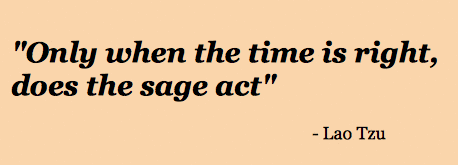
Get Your Timing Right
Good timing is critical to time management. And it is also linked to the order of things.
As a practical example, it is wasteful to water your garden soon after a heavy rain. Or light a candle when it is bright daylight.
So before rushing to act, take time to plan your work, and think about your timing.
Effective time management begins from the very first step you take.
Since you’ve already learned how to know your center and discover the important actions to focus upon, you must now ask yourself if the time is right to do it.
If it is, act swiftly and with purpose.
If not, wait until it is.
Be Still
For perfect harmony, you must strike a balance between two things:
- the urge to act
- the need to wait
Stillness and action are two sides of the same coin.
By learning how to slow down and take stock, you’ll gain unique perspective into your priorities… and that will make you infinitely more effective and productive.
When you consciously slow down and pause to think about what you are doing, you’ll
- expand your awareness,
- grow more calm,
- lower expectations, and
- make wise decisions.
Then, you can set about implementing those decisions efficiently.
Prioritize With Your Day Planner

Your day is divided into sections, each with its own specific activities.
Many of these sections are scheduled into your day planner, with some flexibility built into them. Others are random and unplanned.
It is more important to get into the habit of completing all tasks that you have listed in your day planner than to rigidly adhere to an externally imposed schedule.
At the same time, a totally unplanned day can lead to imbalance and work related stress, laziness and lack of productivity.
You can solve this problem when you prioritize tasks before adding them to your day planner.
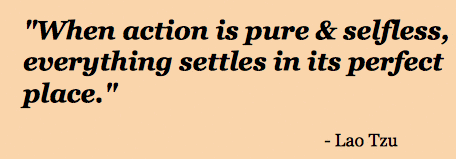
Time Management Tao : A Simple Guide to Prioritize Work
The easiest way to prioritize a task on your to do list is by:
- how much time you have available for it
- is it really important to your goals
- how serious are the consequences of not doing it
But beware of pitfalls in going down this route.
When you make profitability the yardstick by which you measure or prioritize all your work, you may become more efficient – yet end up dissatisfied, frustrated and unhappy.
It is difficult to put something last on your day planner (or even keep it off) when others depend upon you, or when the task itself is critical for a major project.
The Time Management Tao way of managing time, however, is to evaluate work in the bigger context of your higher purpose… and only then, prioritize suitably.
When you face conflict or difficulty in setting a priority for your tasks, you must rely upon some time management tools for help.
Let’s discuss a few of them.
Paired Comparison Analysis – This helps with decisions involving unclear or subjective criteria. You start by picking the first two items on your list, and deciding which one is more important.
Then you repeat the exercise with the next item on your list, working your way down it to identify the highest priority tasks.
Grid Analysis – It is a method helpful for choices involving multiple factors. An Action Priority Matrix can help you diagrammatically plot the value of each task against the time and effort it will take, to quickly spot the highest efficiency items to focus on first.
Urgent/Important Matrix – This groups tasks by their relative urgency and importance. The danger lies in misinterpreting urgent tasks as being important.
Ansoff and Boston matrices – These are of some help in providing “rule of thumb” guides to setting your priorities.
Use Your Day Planner To Organize
Once you have successfully prioritized your activities, use your day planner to schedule them into your working hours.
Research has clearly shown that tasks not assigned a particular time frame and duration are the ones that tend to get postponed, or prolonged beyond reasonable limits.
This means you cannot complete your to-do list, which causes stress, anxiety and frustration.
You can avoid all this if you just:
- create your to do list in a day planner
- assign each task a particular time slot in your day
- set an estimated duration for completing it
- discipline yourself to stick to this schedule
By now, you are well and truly along the path to mastering the Tao of Time Management.
- You know how to set goals that are meaningful and let you fulfill your purpose.
- You are aware of the order of things, and realize the secret of getting more done without having to do more when you prioritize your day.
- There’s just one last thing left – and that’s actually getting things done.
We’ll discuss this in the next section.
How To Master Stress Free Productivity
Overcome Procrastination & Reach Your Targets – Quickly, Easily, Effortlessly

Getting things done is the eventual target of the Time Management Tao approach that’s rooted in intelligent goal setting and learning to prioritize tasks correctly.
The best-laid schemes o’ mice an’ men
Gang aft agley,
An’ lea’e us nought but grief an’ pain,
For promis’d joy!
(The best laid schemes of mice and men often go awry, leaving us nothing but grief and pain, for promised joy!)
Most time management plans go off the rails because they remain concepts and dreams. You still have to translate them into action – and get things done.
Otherwise you cannot enjoy the riches and benefits that come from optimally using the abundant time available to us all. Enough to get every important task done.
Hand in hand with your focus on getting things done comes the realization that nobody can tackle everything all alone.
We need help. We need to hand over some tasks.
So we must learn to delegate.
Delegation is simple and easy – but hard to learn. At the heart of this lies our own unwillingness to let go.
The Time Management Tao way makes it easier to release our ownership of tasks, and let responsibility for action devolve naturally to those equally capable of handling them.
At this point, you have set the right goals by learning what matters most – to you.
You have understood the order of things, and mastered the way to prioritize items on your day planner.
All that’s left is to get things done.
Get Specific
Ambiguity creates confusion. It leads to delays. It wastes precious time.
So you must get really specific.
Each morning when you begin work, you must know precisely what targets you aim to achieve before the day ends.
Because you already have the ‘big picture‘ clearly in mind, these tasks and activities will naturally be aligned with it. This way, you will always be working on important things.
Draw Up Your Schedule
This is standard time management advice. What’s different with the Time Management Tao style is how you avoid the temptation to over-schedule.
You’ll only pick items that match your goals, and that align with your bigger targets.
These tasks can fit comfortably into your day… and you can confidently ignore all the rest!

Decide Your Order
Since you understand the order of things, you’ll find it easy to slot each activity on your day planner into the appropriate order.
This way you can do it without stress or worry about being able to complete your list.
You’ll learn about the different time management systems and tools available to help you finish things.
Get Started
Procrastination is a common enemy that time managers must conquer for getting things done.
The reason you tend to put things off is because you don’t always clearly see how it fits your purpose. So you don’t feel a keen desire to get things done.
The solution is to ask yourself if the task you’re delaying really matters.
If it does, then reminding yourself about the purpose served by getting it done will help kickstart your efforts – and help you beat procrastination.

Guard Against Overload
The stress attached to conventional time management is often linked to having too much on your list of things to do.
- You’re overwhelmed.
- You struggle to find your balance.
- And you waste time trying to prioritize.
With the Time Management Tao approach, you sidestep the issue completely.
Focus on a single task. Ignore all the others. And finish it.
Then move to the next one on your list.
Because every task on your list is important, you know that you aren’t wasting any time at all.
Handle Interruptions
Interruptions are unavoidable.
The key is to keep them from upsetting you or derailing your schedule.
While external measures like locking your door, turning off the phone, or having an assistant screen callers may work to an extent, they kill spontaneity and lower your enjoyment.
The Taoist approach is to get your thoughts and flow back quickly after any interruption.
So you’ll weave these random, fun events into the overall fabric of your important work… without sacrificing either.

Learn Smart Delegation
Traditional training about delegation is to hand over tasks to the person(s) best able to handle them.
Sometimes, though, this approach can leave you unhappy or even angry.
Why?
Because, apart from skill and expertise, there’s a ‘fun factor‘ at play – and for that reason, you might want to personally handle a task – even one that’s more efficient to hand over to someone else.
Time Taoists listen to their heart to decide whether or not to take on extra responsibilities.
This avoids over-commitment, and ensures that you are working only on things you enjoy most.
Saying ‘No’ Matters
Over-committing yourself is another pitfall to steer clear of. Learn to say ‘No‘ more often.
It becomes easier when you clearly visualize your biggest goals. And when you can see whether or not a particular job, project or activity will lead you closer to it.

Achieve Balance and Harmony
Where the follower of Time Management Tao scores over others trying to get things done is in achieving harmony through adjusting to others.
Even while you are working on your highest priorities, you are not over-loading your plate with other people’s demands and requests. This, in turn,
- helps avoid stress,
- doesn’t let down people who depend on you, and
- conditions others to not dump extra work upon you.
It leads to greater balance and more harmony in your relationships with colleagues, co-workers, family and friends.
Mastering Time Management Tao
The three core tenets of Time Management Tao are simple, even embarrassingly so.
All you have to do is:
- Find your center – know WHAT to do
- Understand your order – know HOW to do it
- Pick your timing – know WHO to use & WHEN
We have broadly discussed each of these elements.
But you probably want more detail. Maybe you’d like a road map or a blueprint that outlines each approach in greater depth.
That’s the reason why I’ve made available a series of guides about how to boost personal productivity under the Ming Vase Time Management label.
You’ll find these short, focused reports, ebooklets and courses helpful in guiding you through the nuances and finer points of each concept.
- How To Focus : Beat Procrastination & Get Things Done
- Knife At a Gunfight : Build Your New Life in 5 Easy Steps
- Transform Yourself : In Just 37 Days
Get Our FREE Email Newsletter
When you sign up to our free weekly “Time Taozine” email newsletter by filling in the registration form here, you’ll get some more FREE tips and secrets on better time management.
